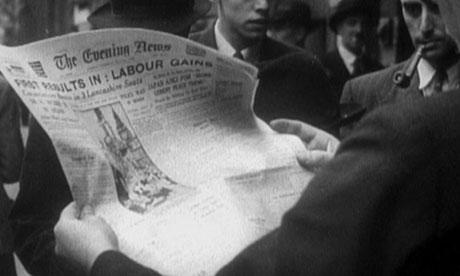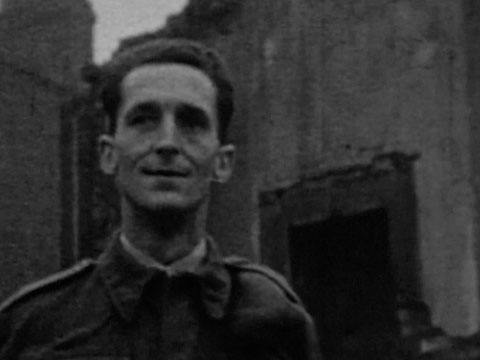No one can accuse Ken Loach of sitting on the fence. This account of Labour's postwar general election victory and the subsequent programme of nationalisation is about as partial as they come. In Loach's eyes this was a glorious time, when the experiences of the second world war were put to era-changing use on a home front still crippled as much by the depression of the 1930s as by military expenditure. The rush of socialist enthusiasm ended dangerously exploitative conditions in heavy industry, rebuilt lousy housing and established a free-to-all medical service.
Well, Loach's film certainly packs an emotional punch. He calls on a string of retirees – former mineworkers, nurses and the like – to tell their stories. It's clear that a big part of Loach's purpose is to confront the decades of media propaganda that have characterised unionised workers as overpaid shirkers, brakes on growth and "the enemy within", as Loach's principal bete noire, Margaret Thatcher, would have it. Indeed, as Loach presents it, this was a time when the union man (and woman) was a heroic figure, straddling the age and hewing the future with bare hands. It's stirring stuff.
But I do have to confess to feeling a tiny bit disappointed. Although Loach's film is certainly engaging – largely down to his spirited interviewees – there's something a little sketchy about it. We know that this was an epoch-making period, that the 1945 election was great national drama, that Attlee was a great leader – but the film rushes through it all with little attempt at in-depth contextualisation. Loach's aim is to favour memories and reminiscences (as the title indicates); I'd have liked the exhortatory tone leavened with more detail. Rather bafflingly, for example, he completely blanks that other great project of the 1945 Labour government, the disengagement from empire – the global impact of which has arguably been greater.
But it would be churlish to pick too many holes. This is clearly a subject Loach has great feeling for, even if he keeps himself scrupulously off camera. There's a very contemporary purpose at work here too: to remind people, if nothing else, why the NHS is worth fighting for at the very moment it's being dismantled. Films are rarely this committed or, indeed, persuasive.











